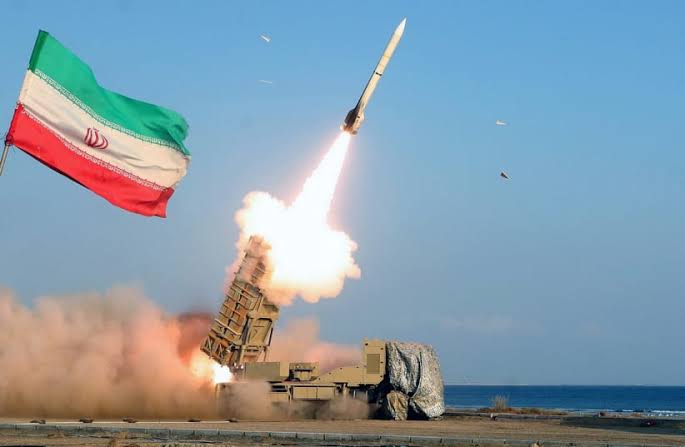Iran-Israel Conflict– In a dramatic escalation of tensions in the Middle East, Iran has launched a wave of strikes toward Israel, sparking fears of a wider conflict. This retaliation comes in response to last week’s deadly Israeli strike on an Iranian embassy complex in Syria, which killed several high-ranking officials. The situation is fluid, with developments unfolding rapidly.
Background:
– Iran accuses Israel of bombing its embassy complex in Syria, leading to the destruction of the consulate building and the death of top Iranian officials.
– The airstrike killed Mohammed Reza Zahedi, a top commander in Iran’s elite Revolutionary Guards (IRGC), and senior commander Mohammad Hadi Haji Rahimi, among others.
– Iran’s Supreme Leader Ayatollah Ali Khamenei and President Ebrahim Raisi have vowed retaliation, while Hezbollah has promised punishment and revenge.
Current Situation:
– Iran has launched several dozen drones, with estimates ranging from “more than 100” to “several dozen,” toward Israel.
– Iranian state media confirmed the drone strikes and missile launches against Israel.
– Israeli air defenses have intercepted some of the Iranian strikes over Jerusalem, with reports of explosions and sirens in the area.
Response and Preparedness:
– Israel has deployed tens of fighter jets for a defense mission and is aiming to intercept the drones before they reach Israeli airspace.
– Public shelters have been opened in Haifa, and Israel has closed its airspace, along with neighboring Jordan, Iraq, and Lebanon.
– The US has sent Central Command chief Gen. Michael Kurilla to Israel for talks and is moving additional assets to the region to bolster deterrence efforts.
Global Implications:
– There are concerns that the conflict could escalate into a wider regional conflict, with the US and other countries closely monitoring the situation.
– The US has reiterated its support for Israel’s security, emphasizing its “ironclad” commitment.
What You Can Do to Help:
1. Stay Informed: Follow reputable news sources for updates on the situation and avoid spreading unverified information.
2. Support Diplomatic Efforts: Encourage peaceful resolution through diplomatic channels and support international efforts to de-escalate tensions.
3. Humanitarian Aid: Consider supporting organizations providing humanitarian aid to those affected by the conflict, such as refugees and displaced persons.
4. Advocate for Peace: Use your voice to advocate for peace and dialogue in the region, promoting understanding and reconciliation.
Conclusion:
The situation between Iran and Israel is highly volatile, with the potential for further escalation. The international community is watching closely as tensions continue to rise in the region. The question remains: Is this the beginning of World War III, or can diplomatic efforts prevent further escalation?
